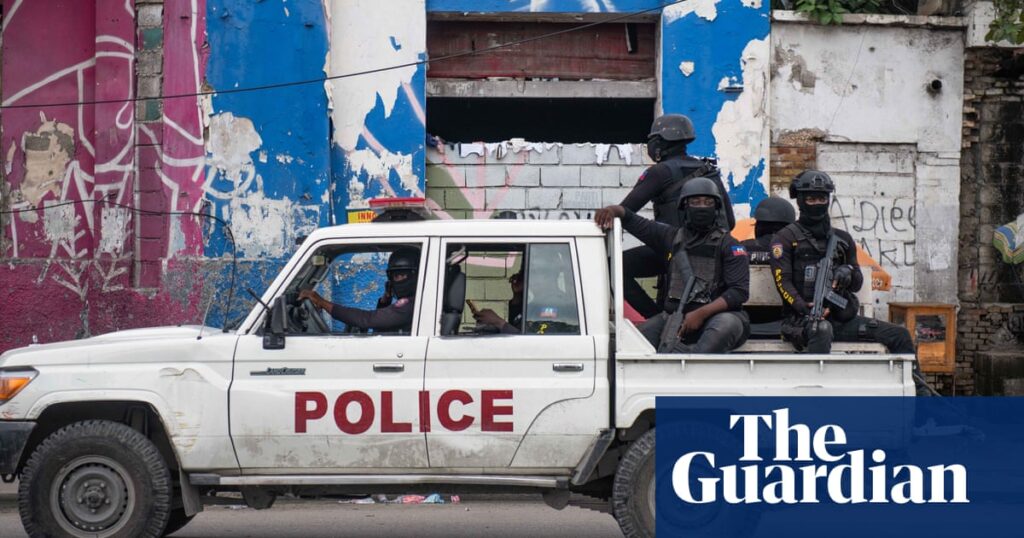Two reporters and a police officer were killed and others injured on Tuesday when armed men opened fire on a group of journalists who gathered for a government press conference scheduled to announce the reopening of Haiti’s largest public hospital.
Street gangs forced the closure of the State University of Haiti hospital early this year and authorities had pledged to reopen the facility in the capital Port-au-Prince on Christmas Eve. But as journalists gathered to cover the event, the gunmen opened fire.
Johnson “Izo” André, considered Haiti’s most powerful gang leader and part of a gang coalition known as Viv Ansanm that has taken control of much of Port-au-Prince, posted a video on social media claiming responsibility for the attack.
The video said the gang coalition had not authorized the hospital’s reopening.
Video posted online showed reporters inside the building and at least three lying on the floor, apparently wounded. The video could not be immediately verified.
Robest Dimanche, a spokesperson for the Online Media Collective, identified the killed journalists as Markenzy Nathoux and Jimmy Jean. The Haitian Association of Journalists confirmed two reporters and a police officer were killed, and seven reporters were wounded in what it called “a macabre scene comparable to terrorism, pure and simple”.
“I send my sympathies to the people who were victims, the national police and the journalists,” Haiti’s interim president, Leslie Voltaire, said in an address to the nation.
Later, the government put out a statement saying it was “responding firmly to the attack”.
“This heinous act, which targets an institution dedicated to health and life, constitutes an unacceptable attack on the very foundations of our society,” it said.
Journalists were invited to arrive at the hospital from 8am (13.00 GT) to the press conference in downtown Port-au-Prince with Haiti’s new health minister. They were still awaiting the minister when shooting began at about 11am.
The health minister, Duckenson Lorthe Blema, was installed late November in a cabinet re-shuffle when former prime minister Garry Conille was ousted after just six months in office.
The State University of Haiti hospital, known locally as the general hospital, is the country’s largest public hospital but it has been closed since a March surge in gang attacks that saw former prime minister Ariel Henry ousted from power.
Gang attacks have pushed Haiti’s health system to the brink of collapse, looting, setting fires, and destroying medical institutions and pharmacies in the capital. The violence has created a surge in patients and a shortage of resources for treating them.
Haiti’s healthcare system faces additional challenges from the rainy season, which is likely to increase the risk of water-borne diseases. Poor conditions in camps and makeshift settlements have heightened the risk of diseases such as cholera, with more than 84,000 suspected cases in the country, according to Unicef.
Reuters and Associated Press contributed reporting

